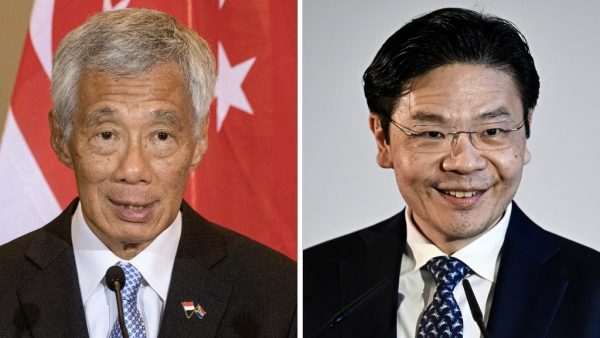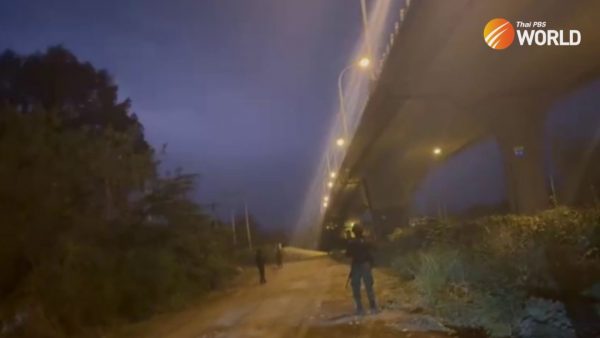The Good, the bad and China

Despite its involvement in the UN Security Council meeting that issued a call for the release of those detained during the coup, the Chinese government may as well have sent Myanmar a “Get Well Soon” card.
YANGON – It seems that, yet again, Myanmar is in the global spotlight. As the world’s nations struggle with multiple waves of COVID-19, February 1 saw Myanmar’s military conduct yet another coup. For 17 days, there have been daily protests, strikes, police crackdowns, widespread condemnation by the international community and all sorts of chaos brought by the military’s attempt at a political reset, claiming widespread electoral fraud in the 2020 General Election.

Protestors marching on the streets dwindled as the Civil Disobedience Movement (CDM) took center stage. While the CDM is aimed at persuading civil servants to stop showing up in their offices, embassies remain crowded with protestors appealing to the international community to assist in the plight of the people of Myanmar.

The Chinese embassy in Yangon, however, has seen the most intense protests. As citizens were flocking to protest at the US Embassy seeking international assistance, most of the protestors were at the Chinese Embassy to condemn China. The focus on Chinese embassy began the previous week where, despite the military government’s draconian cybersecurity law, rumours exploded on social media that the Chinese government was assisting the coup makers by helping to install an internet “Chinese firewall” for the military.
The accusations coincided with multiple flights between Yangon and Kuming, which people suspect were carrying IT technicians and other infrastructure to impose widespread internet controls.
The Chinese Embassy has since denied those rumors, claiming that the flights were mostly cargo runs which usually transport fresh produce, such as seafood, contrary to some other rumours that the cargo planes were carrying weapons.
Local professionals in the aerospace industry have also given credibility to the claim that it may just have been aquatic products.
In an interview with the Chinese Ambassador to Myanmar, Chen Hai, he said that “These aircraft are normal cargo flights between China and Myanmar, whose frequency has dropped from 15-18 flights per day before the pandemic to about 5 flights per day now. They carry seafood and other exports from Myanmar to China.”
Because, China
Nevertheless, a switch was flipped. It was a simple and logical conclusion for the people of Myanmar. After all, China has been the shadow in which many South-East Asian nations have been living for a very long time and it is on friendly terms with the military, or even the NLD-led civilian government for that matter.
The dependence on China and its huge market, regardless of relaxation or tightening of US sanctions, is common knowledge. China was, is and will likely continue to be the biggest foreign trade partner and investor in Myanmar. Apart from projects, resulting from the bilateral relations between the nations, many China-based mega companies, such as Huawei, have been carrying out many CSR projects in several sectors, such as education and, of course, telecommunications.

Nonetheless, as it is often the way when dealing with China, projects of mutual interest are often biased in China’s favour. The 771 kilometers long oil and natural gas pipeline, from Kyaukphyu, Rakhine to Kunming, Yunnan, is a project which was signed under the military regime and came under heavy criticism as unfair to Myanmar.
The other one would be the Myitsone Dam, a 3.6 billion dollar hydroelectricity project, suspended under President Thein Sein’s administration in 2011 because it posed a danger to not only the ethnic Kachin people but the Irrawaddy River and all related ecosystems.’
Another significant project with China, launched under the ousted-NLD government, is the Kyaukphyu deep sea port, part of the Kyaukphyu Special Economic Zone.
The original version of the project gave the Chinese developer an 85 percent stake and was expected to cost up to 10 billion dollars. After criticism erupted that Myanmar could land into the so-called debt trap, and widely drawn parallels to the Hambantota Harbour in Sri Lanka, the deal was renegotiated to begin on a smaller scale, with the initial phase to only cost 1.5 billion dollars.
The mistrust of China runs deep and, despite China’s efforts to avoid this, is unavoidable. Ambassador to Myanmar Chen Hai said that, “Both the National League for Democracy and the Tatmadaw maintain friendly relations with China. The current development (the coup) in Myanmar is absolutely not what China wants to see”. Simply put, China did not need the military to take over to pursue their national interests.
When the state-owned newspaper reported, however, that military chief Senior General Min Aung Hlaing had ordered the continuation of hydroelectricity projects, at a meeting held on February 15, people immediately came to the conclusion thatt the Myitsone Dam project will soon be restarted to curry favour with the Chinese.

“Kyemon” newspaper.
The style of rule by the military is similar to how the Chinese Communist Party ran things at home, albeit with a cinsiderably lower degree of economic success. Both rule with an iron rod, clamping down on criticism leveled at the government as well as denying othrer personal freedoms.
Additionally, the majority of people in Myanmar now feel a kinship with the Hong Kong protestors, with pro-democracy activists and protest leaders sharing with Myanmar people their experiences and lessons learnt from their own nation’s struggle.

Picking a side
When protests erupted, there were many in the nation who had refused to support either the military or the NLD-led government, especially those within the ‘88 Generation (pro-democracy activists and leaders that were a part of the 1988 Uprisings).
In most eyes of the protestors, remaining silent in the face of great injustice and a grave threat to democracy meant that they were, in effect, helping the coup installed government. To just obey for the sake of “duty” and “acting on orders” like those who refused to participate in CDM or the soldiers or police cracking down on protestors, they are now a threat to democracy by remaining a tool for the oppressors.
As this political crisis forces the people of Myanmar to take a side, most are looking to the western nations, like the US, which people believe, at the very least, support a democratic society. Many political analysts and observers in Myanmar see the 2021 coup as having tremendous unintended consequences.
 Historian Thant Myint U, grandson of former UN Secretary-General U Thant, wrote in his article on Financial Times, published on 12 February, that the coup “meant to surgically reset” the balance of power back in favour of the military, like the olden days. Instead, it has unleashed not only the anger of the people but also “a new revolutionary dynamic”.
Historian Thant Myint U, grandson of former UN Secretary-General U Thant, wrote in his article on Financial Times, published on 12 February, that the coup “meant to surgically reset” the balance of power back in favour of the military, like the olden days. Instead, it has unleashed not only the anger of the people but also “a new revolutionary dynamic”.
Thant Myint U also mentioned that a compromise between the commander-in-chief and Aung San Suu Kyi is almost as improbable as protests alone taking down the military.
Whatever the outcome, the majority of the population has had enough of the military’s dominion. If the democratic system were restored, the balance of power for the NLD will never be the same and, even if the generals succeed in stomping out unrest and holding on to power, they will be lording over a population several times more defiant and well-informed than in all previous coups and are likely remain isolated and internationally condemned.
“The future is up for grabs,” wrote Thant Myint U. As the United States’s navy flexes its muscle in the controversial South China Sea, and as most of the international community condemns the coup, China will likely have to be more assertive in protecting its interests in Myanmar.
“We sincerely hope that the Myanmar people can distinguish right from wrong and guard against political manipulation, so as to avoid undermining the friendship between the two peoples,” said the Chinese Ambassador Chen Hai. Despite its involvement in the UN Security Council meeting that issued a call for the release of those detained by the coup, the Chinese government may as well have sent Myanmar a “Get Well Soon” card.






